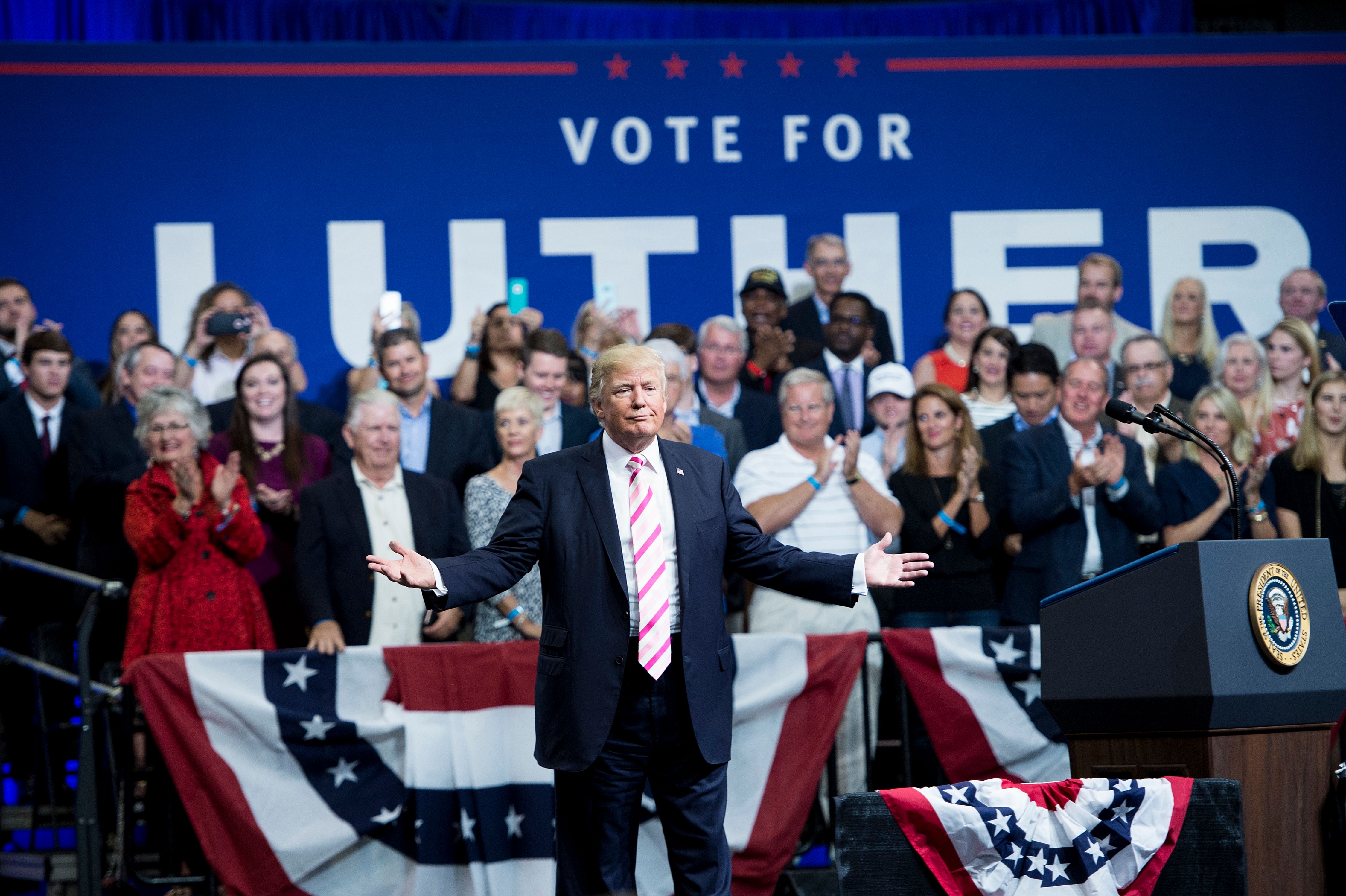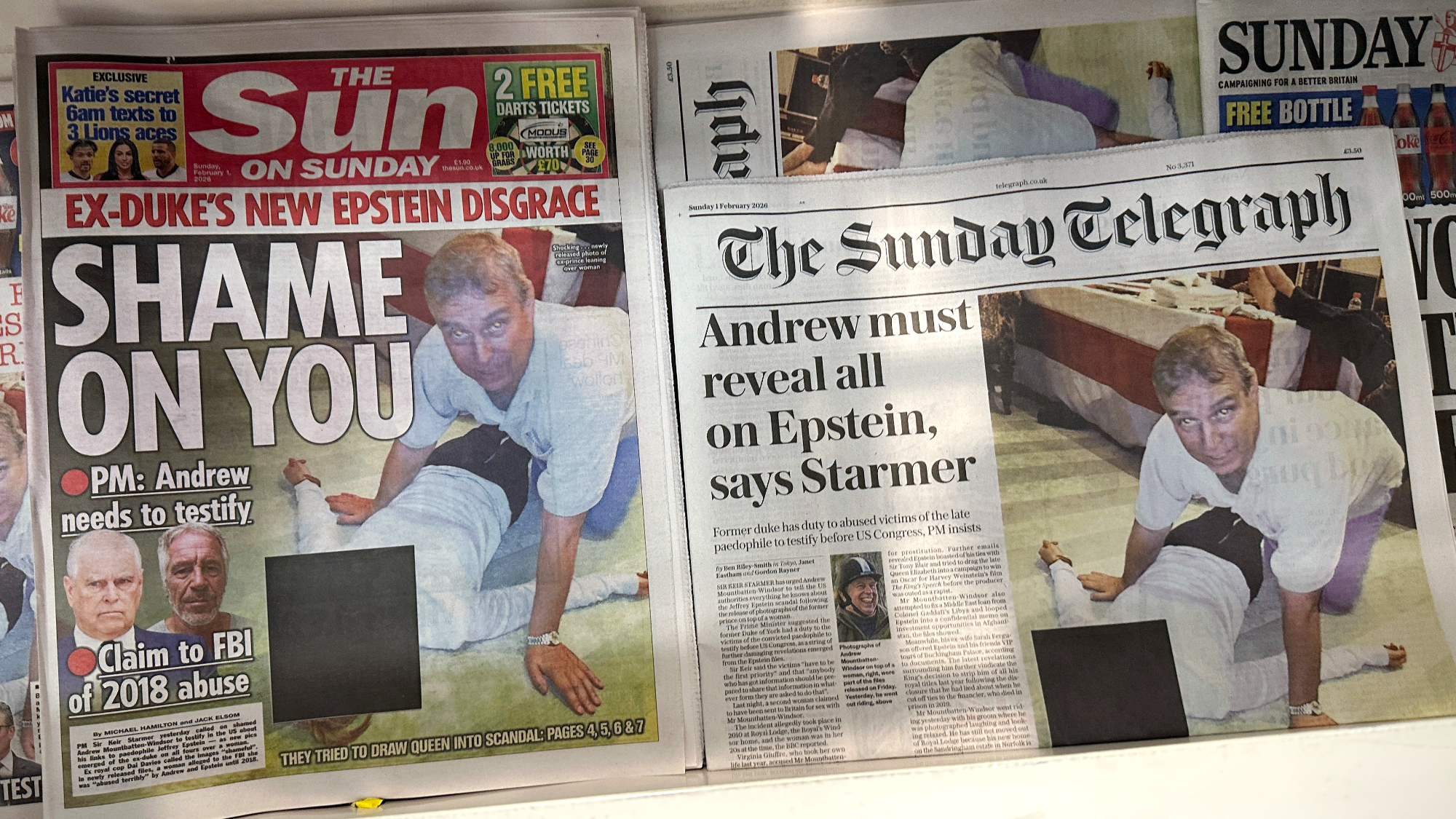How liberals are playing right into Trump's hands
Don't just call Trump a racist. It's a trap!


To judge from liberals' furious response to President Trump's race-baiting invective over the past few days, the American left has yet to adjust to a changed political landscape in which the presidency is occupied by a populist demagogue.
I'm talking, of course, about the reaction to the president's profane attack on professional athletes like unemployed quarterback Colin Kaepernick for kneeling during the national anthem, as well as his follow-up tweets directed against two-time NBA MVP Stephen Curry of the Golden State Warriors, any players who dare to show solidarity with kneeling athletes, and the NFL for failing to fire all supposed transgressors against American patriotism.
Kaepernick and Curry are African American, as are the vast majority of players in both the NFL and the NBA. And so, the immediate response from many on the left was to loudly denounce Trump's statements as blatantly racist. Let's concede that his comments were indeed racist. After all, the attack was first made at a Friday night rally in Alabama, a state with a long and nasty history of racial oppression in the name of white supremacy. And Kaepernick's protest was motivated by often lethal acts of police brutality against African Americans. An attack by the president of the United States on someone peacefully exercising his First Amendment rights for such a cause is obviously designed to tap into and legitimate latent racism in a certain part of the electorate.
The Week
Escape your echo chamber. Get the facts behind the news, plus analysis from multiple perspectives.

Sign up for The Week's Free Newsletters
From our morning news briefing to a weekly Good News Newsletter, get the best of The Week delivered directly to your inbox.
From our morning news briefing to a weekly Good News Newsletter, get the best of The Week delivered directly to your inbox.
The left often seethes over this sort of racism. My colleague Ryan Cooper did just that here at The Week. And it's not hard to see why. The left feels genuine moral revulsion at the president's words and actions, as well they should. But it's also easier and more satisfying to make a self-righteous moral gesture than it is to figure out how to effectively challenge Trump's populist demagoguery. To do the latter, Trump's opposition would need to confront what's different, and distinctive, about that form of political engagement, and adjust its tactics accordingly. As is, the left is playing right into Trump's hands.
Politics at the presidential level is almost always about building unity, appealing as broadly as possible for support from the electorate. This doesn't mean that any president (or his advisers) actually believes it's possible to bring everyone on board with a governing agenda. Neither does it mean that presidential campaigns and administrations never intentionally make choices about policy, rhetoric, and style that knowingly antagonize large blocs of voters. But it does mean that such choices are usually couched in positive terms — with those on the other side of the dispute implicitly invited to come along and join the president's effort to move the country in a more positive direction.
This isn't Trump's approach at all. He may say that he wants America to come together and unify in pursuit of making the country “great again.” But his words almost always have the opposite effect — not because the electorate preemptively hates him, but because he continually says and does things seemingly designed to antagonize large segments of the country and therefore increase its polarization.
Instead of acting to bring the country together, Trump intentionally seeks to divide it.
A free daily email with the biggest news stories of the day – and the best features from TheWeek.com
Trump's true predecessor in this regard was another right-wing populist, George Wallace, whose 1968 third-party presidential campaign practiced a politics of anger, hatred, contempt, resentment, and yes, of course, blatant racism. Like Wallace, Trump uses inflammatory insults to provide his angry supporters with a catharsis — and to provoke his political opponents into lashing back. When they do, it serves to vindicate the original insult. That's how deliberately sowing divisiveness can be a political boon.
But why is this a problem, the left wonders? It's not as if the protests of the civil rights movement of the 1960s were particularly popular with white America. That unpopularity was no reason for the crusade for racial justice to refrain from pressing the case then. Why should the left behave any differently now?
Because Trump isn't Lyndon Johnson, who responded to the civil rights movement by pulling every string imaginable to get Congress to pass the Civil Rights Act. Trump isn't even Richard Nixon, whose defense of "law and order" and pursuit of the "Southern strategy" of appealing to former Democrats in the white South brought some of Wallace's populism into the GOP. Despite that, Nixon ultimately sought national consensus and conciliation, and he received it in the form of a massive landslide re-election victory in 1972.
Trump wants something else entirely.
Whether or not the president thinks about it strategically or (more likely) just acts on instinct, his words invariably follow a polarizing script. First he identifies a point of civic tension — in this case, Kaepernick's protest. A portion of the country feels anger at the gesture of dissent from the national anthem — some of them because of outright racism, but others because they see it as a sign of disrespect toward the country at a moment that's set aside for patriotism. Then there's a second group — probably millions strong — that doesn't exactly admire the protest, but also doesn't especially care much one way or another. Let's call them the tepid.
By expressing, intensifying, and amplifying the views of the first group with all the volume of the presidency, Trump emboldens those who were already angry. Now they have a champion in the White House. At the same time, he provokes the left into issuing a flood of angry counter-denunciations that reduce everyone ill-at-ease with the original protest (including our ambivalent tepids) to the category of racists and white supremacists. Meanwhile, the presidential attacks inspire additional athletes to engage, out of solidarity, in more of the same type of protest. Now far more players kneel during the anthem or refuse to come on the field to salute the flag — and a wide range of news and sports commentators explicitly take their side.
Now the tepid find themselves falling in behind the first group, ticked off that growing numbers of players and media personalities seem to have turned on the country and its flag.
It doesn't matter that the protests are an expression of justified outrage about racially based police brutality and not intended as a gesture of disrespect toward the flag or the country in general. By setting up the dispute in a polarizing way, Trump has managed, rhetorically speaking, to place himself and those most aggrieved by the protests on the same side as the flag and the national anthem.
He's also quite likely expanded the ranks of the aggrieved. They will never be the whole country, and perhaps not even a majority. But there don't need to be that many for Trump and the divisive form of politics he practices to receive a boost from his intervention. The more divided and conflict-ridden the country is — and the more frayed its social fabric — the more a demagogue like Trump will thrive.
Next time the left would be wise to keep its cool and refuse to take the bait.
Damon Linker is a senior correspondent at TheWeek.com. He is also a former contributing editor at The New Republic and the author of The Theocons and The Religious Test.
-
 New Epstein files dump strains denials of elites
New Epstein files dump strains denials of elitesSpeed Read Fallout from the files has mostly occurred outside the US
-
 Will Peter Mandelson and Andrew testify to US Congress?
Will Peter Mandelson and Andrew testify to US Congress?Today's Big Question Could political pressure overcome legal obstacles and force either man to give evidence over their relationship with Jeffrey Epstein?
-
 Moltbook: the AI social media platform with no humans allowed
Moltbook: the AI social media platform with no humans allowedThe Explainer From ‘gripes’ about human programmers to creating new religions, the new AI-only network could bring us closer to the point of ‘singularity’
-
 The billionaires’ wealth tax: a catastrophe for California?
The billionaires’ wealth tax: a catastrophe for California?Talking Point Peter Thiel and Larry Page preparing to change state residency
-
 Bari Weiss’ ‘60 Minutes’ scandal is about more than one report
Bari Weiss’ ‘60 Minutes’ scandal is about more than one reportIN THE SPOTLIGHT By blocking an approved segment on a controversial prison holding US deportees in El Salvador, the editor-in-chief of CBS News has become the main story
-
 Has Zohran Mamdani shown the Democrats how to win again?
Has Zohran Mamdani shown the Democrats how to win again?Today’s Big Question New York City mayoral election touted as victory for left-wing populists but moderate centrist wins elsewhere present more complex path for Democratic Party
-
 Millions turn out for anti-Trump ‘No Kings’ rallies
Millions turn out for anti-Trump ‘No Kings’ ralliesSpeed Read An estimated 7 million people participated, 2 million more than at the first ‘No Kings’ protest in June
-
 Ghislaine Maxwell: angling for a Trump pardon
Ghislaine Maxwell: angling for a Trump pardonTalking Point Convicted sex trafficker's testimony could shed new light on president's links to Jeffrey Epstein
-
 The last words and final moments of 40 presidents
The last words and final moments of 40 presidentsThe Explainer Some are eloquent quotes worthy of the holders of the highest office in the nation, and others... aren't
-
 The JFK files: the truth at last?
The JFK files: the truth at last?In The Spotlight More than 64,000 previously classified documents relating the 1963 assassination of John F. Kennedy have been released by the Trump administration
-
 'Seriously, not literally': how should the world take Donald Trump?
'Seriously, not literally': how should the world take Donald Trump?Today's big question White House rhetoric and reality look likely to become increasingly blurred
